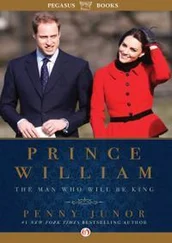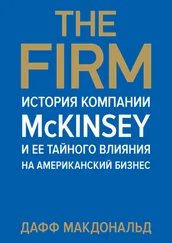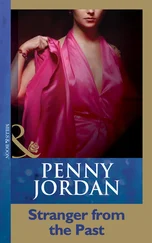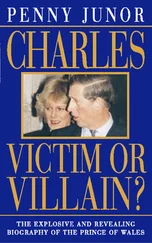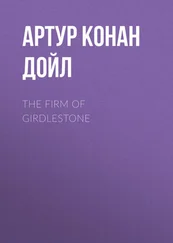I do not believe our relationship with the Commonwealth would be so powerful if we didn’t have the focus of the Queen. She is often the point of unity when the Commonwealth is divided. If ever there is a big row about something it is put aside while the Queen is there. There’s a genuine and universal affection for her.
The Queen attaches great importance to her role in the Commonwealth and is held in great affection by its member states. But those who have worked with Prince Charles feel that he has never shown quite the same interest. The historic link with Britain will not end with the Queen, but will inevitably loosen a bit. In Britain there is every confidence Charles will succeed his mother and be a very good king – provided he doesn’t turn people off by being controversial on political issues. His decision to marry Camilla will never please everyone but the majority of people in Britain are supportive and the announcement has been welcomed by the Commonwealth. In many of those countries Prince Charles is popular and well-accepted, but at the end of the Queen’s reign I think the Commonwealth might well think, ‘We’re an organization in our own right, Britain holds a pivotal position, it was right for the Queen to be head, but is it right in the twenty-first century that it’s automatic? It’s a group of fifty-three independent nations; it shouldn’t automatically be the British sovereign who heads it.’ There is bound to be an internal debate about this in the Commonwealth in due course.
The Queen has been exceptional but there is no reason to suppose Charles will not match up. ‘Monarchy is better in wartime,’ says my senior civil servant, ‘having someone to die for.’ Would they be prepared to die for the Prince of Wales? ‘Yes,’ he insists. ‘He will change overnight when he becomes king, both himself and people’s perception of him. People in this country are very short term in their recollections. Previous controversies will fade overnight. Dignify it with the word “pragmatic” or else “short-term memory” but it’s one of the great strengths of this country; but you do need the institutions there as vessels in which you can put these thoughts. Democracy needs institutions; it can’t rest on the media.’
The media is probably the biggest question mark hanging over the future of the monarchy. Photographs of the Queen and the Prince of Wales may not be so compelling any more but there is always a market for scandal and will always be one for sex – and with the Royal Family there is usually a means of linking the two. And with a character like Prince Harry on the loose there is potential for disaster. HRH is a very heady title and opens all sorts of doors; and there is no one, with the possible exception of his grandparents, who can say no to him. He is a nice boy but he has no sense of responsibility and no self-discipline – and since his mother died he has had no real discipline from outside either. Loving though the Prince of Wales is as a father, he has never put in the necessary time with his sons and by the time he woke up to the fact that Harry was keeping bad company and running wild it was too late to do anything about it.
It is not his fault that his Zimbabwean girlfriend Chelsy Davy had a chatty uncle only too ready to tell the world that his niece and the Prince had discussed marriage. But if Harry had been more controlled we might not have had to know that he and the buxom blonde enjoyed their first romp in a lavatory cubicle in a nightclub. ‘What an awful job,’ says Sir Richard Needham, who almost wrote to the Prince of Wales once to say, ‘If I were you I’d tell your sons to give it all in; the Brits don’t deserve a monarchy.’ ‘What a monstrous life those two boys have to live. It’s all very well saying, “Well, they’ve got all this money”, but that’s irrelevant. Why can’t they live their own lives? It’s really, really awful. They are the only people in this country born into something from which they have absolutely no escape and in which they are hounded, absolutely hounded. The press will get Harry sooner or later – even as an ex-royal he’d be hounded. But the Prince of Wales has got such an incredible sense of public duty he wouldn’t understand what I was talking about.’
FORTY-THREE
The Way Ahead
Shortly before 8.30 on the morning of 10 February 2005 I was driving to London when my mobile phone rang – the first of about 58 calls from the media that day. It was the Sun newspaper with the news that Charles and Camilla were about to announce their engagement. Could I write something for Friday’s paper? A moment later it was GMTV, the programme was just about to end, could I comment before they went off air? Radio 5 Live had an outraged Anglican with whom I suddenly found myself in a heated exchange, and so it went on – Radio Gloucester, Cornwall, Wales etc. – all the way down the M4. The announcement had taken everyone by surprise – even Clarence House – which to Sir Michael Peat’s irritation had been bounced into making it public earlier than planned after the news leaked to the London Evening Standard (shortly after Tony Blair’s weekly Audience with the Queen).
The Prince had first cleared it with the Queen, his sons and the rest of his family at Sandringham over Christmas. He had then popped the question when he and Camilla were at Birkhall over New Year. As soon as she had said ‘Yes’, Sir Michael Peat set all the formal wheels in motion.
Within less than an hour of the news breaking on that Thursday morning, the world’s media had descended on the Mall, and Canada Gate had turned into a mass of satellite dishes, television trucks and radio cars; and freezing presenters picked their way carefully over a snake-pit of communication cables to stand with their backs to Buckingham Palace and fill-in their viewers on when, where and how the couple would be married and the implications for the future. And on hand were royal watchers, historians, politicians, experts and commentators of every kind to give their reactions.
Most people seemed to be very pleased for the couple, and felt about time too, but my angry Anglican was not alone in his disgust. Talking to ITN outside Clarence House a little later I met a woman who was so appalled by the news she had come all the way across London to express it. ‘If Charles is going to marry that woman,’ she said spitting out the words, her face twisted, ‘he should never be king.’ Phone-in programmes called it an insult to Diana’s memory, and on BBC Breakfast the next morning there were emails from viewers that were so terrible they couldn’t be read out. ‘The adulterer should not be allowed to marry his whore’ was one of the more extreme I happened to see.
But the anger passed and by the weekend there were other matters on the front pages of the newspapers and opinion polls were beginning to suggest that the country was not going to be split so violently down the middle as at first seemed likely. The romantic element was creeping in. Camilla had revealed that Charles went down on bended knee to her, her diamond engagement ring was a family heirloom that the Queen had given them, the Archbishop of Canterbury, Dr Rowan Williams, was pleased they had decided to ‘take this important step’, the Queen and the Duke of Edinburgh were ‘very happy’ and had given the couple their ‘warmest wishes’, William and Harry were ‘100 per cent’ behind their father, and ‘very happy for him’, and Tony Blair sent congratulations on behalf of the whole government. And photographs of the Prince and Camilla – both utterly radiant – at Windsor Castle on the night of the announcement were enough to thaw even the coldest heart.
A not insignificant part of the reason why they had waited until 2005 to announce their engagement was a sensitivity towards the boys. They didn’t want to foist a step-mother on William and Harry before they had fully grown up. Accepting Camilla as a fixture in their father’s life has been difficult for them and although they have been genuinely pleased to see him so happy, and genuinely like Camilla – and her children – the issue is complicated. The notion that their mother was a sacrificial extra in a long-standing love story between Charles and Camilla – a line most of the newspapers ran after their engagement – is hurtful. They loved their mother and are fiercely loyal to her memory – and know that Camilla was the cause of her terrifying unhappiness.
Читать дальше
Конец ознакомительного отрывка
Купить книгу

